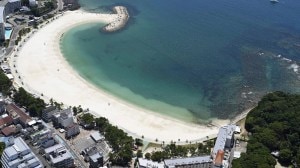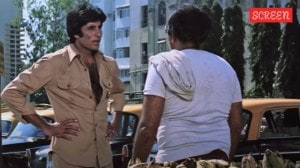Proximity between 2 trains, track curvature among reasons for Mumbra accident: Preliminary probe
The five-member probe panel investigating the Mumbra train accident has found that it was triggered by a passenger on the CSMT-Kasara Fast local losing his balance and falling.
 The investigating officials believe that the accident was triggered by a passenger on the CSMT-Kasara Fast local losing his balance and falling. (Express file photo)
The investigating officials believe that the accident was triggered by a passenger on the CSMT-Kasara Fast local losing his balance and falling. (Express file photo)The preliminary probe into the June 9 train accident near Mumbra in Thane, where five commuters were killed, indicates that proximity between the trains and horizontal movement due to track curvature were among the reasons for the mishap.
A five-member probe panel comprising Central Railway (CR) officials has also found that a 0.75 metre gap between passengers standing on the footboards of the two local trains moving in opposite directions—Chhatrapati Shivaji Maharaj Terminus (CSMT) to Karjat and Kasara to CSMT—was one of the major reasons for the accident. The two trains were moving at a speed of around 75 kmph each, resulting in a total relative speed of 150 kmph at the time of crossing.
The inquiry committee, comprising senior CR officers from the safety, security, operations, electrical and engineering wings, has to file its final report within a week.
The investigating officials believe that the accident was triggered by a passenger on the CSMT-Kasara Fast local losing his balance and falling. While the reason for his fall is yet to be determined, the man was carrying a shoulder travel bag that may have led to him going off balance, the officials suspect.
When the man fell, a Government Railway Police (GRP) constable standing behind him also fell. The duo hit passengers on the other train moving in the opposite direction, resulting in six commuters falling onto the tracks. According to officials, the entire incident took place within seconds.
“The bag carried by the man who fell left a perceptible black mark on one of the coaches of the Kasara-CSMT local. This shows physical contact at the time of passing,” a CR official said.
Though the distance between the train coaches was in the usual range of 1.8 to 2 metres, that between the passengers on the footboards of both trains was only 0.75 metres when they crossed each other, the probe panel has found.
Officials said that the CSMT-bound train had several office commuters packed into it, while the Kasara-bound train was comparatively less crowded. No technical fault has been identified in either train, officials added.
More than two weeks after the tragedy, the Central Railway has still not determined the exact reason why the commuter slipped. While the CCTV cameras at Mumbra railway station recorded both trains entering and exiting the station, they did not cover the central section of the tracks where the passengers slipped.












